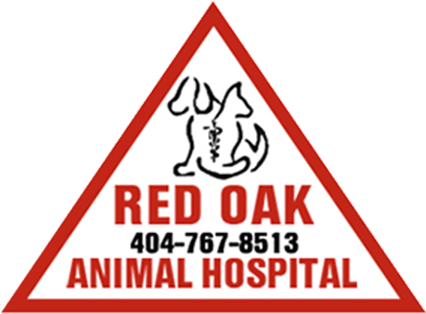Tick Born Disease
Tick-Borne Diseases in Pets in Atlanta, Georgia: A Hidden Danger
Our warm and humid climate in Atlanta, Georgia is an environment conducive to the proliferation of ticks. These tiny arachnids can transmit various diseases to pets. In this article, we will delve into the common tick-borne diseases that affect pets in the Atlanta area, the signs and symptoms to be vigilant about, and the preventive measures essential for protecting your beloved companions.
Common Tick-Borne Diseases in Atlanta, Georgia:
- Lyme Disease:
- Causative Agent: Borrelia burgdorferi
- Commonly Transmitted by: Black-legged (deer) ticks
- Symptoms: Lameness, fever, lethargy, joint swelling, and loss of appetite
- Geographic Distribution: In the northeastern and north-central parts of the United States, including parts of northern Georgia, making it relevant to Atlanta.
2. Ehrlichiosis:
- Causative Agent: Ehrlichia species
- Commonly Transmitted by: Brown dog ticks, Lone star ticks
- Symptoms: Fever, decreased appetite, weight loss, nosebleeds, and bruising
- Geographic Distribution: Widespread in the United States, including Georgia.
3. Anaplasmosis:
- Causative Agent: Anaplasma species
- Commonly Transmitted by: Black-legged (deer) ticks, Western black-legged ticks, Brown dog ticks
- Symptoms: Lethargy, joint pain, fever, vomiting, and diarrhea
- Geographic Distribution: Various regions in the United States, including parts of Georgia.
4. Rocky Mountain Spotted Fever (RMSF):
- Causative Agent: Rickettsia rickettsii
- Commonly Transmitted by: American dog ticks, Brown dog ticks
- Symptoms: Fever, joint pain, skin rash, neurological signs, and swelling
- Geographic Distribution: Predominantly in the southeastern and south-central United States, including Atlanta.
5. Babesiosis:
- Causative Agent: Babesia species
- Commonly Transmitted by: Brown dog ticks, American dog ticks, Ixodes ticks
- Symptoms: Pale gums, weakness, fever, and dark urine
- Geographic Distribution: Reported in multiple regions of the United States, including Georgia.
Signs and Symptoms of Tick-Borne Diseases in Atlanta Pets: Pets in Atlanta are at risk of contracting tick-borne diseases, and it's important to be aware of the symptoms, which may include:
- Lethargy and weakness
- Fever
- Loss of appetite
- Joint pain and lameness
- Skin rashes or bruising
- Difficulty breathing
- Vomiting and diarrhea
- Swelling and enlarged lymph nodes
Preventing Tick-Borne Diseases in Atlanta Pets:
- Tick Control:
- Use tick preventatives recommended by your veterinarian, specifically designed for the Atlanta area.
- Regularly check your pet for ticks, especially after outdoor activities in local parks and wooded areas.
- Keep your yard well-maintained to reduce tick habitats.
2. Vaccination:
- Discuss with your veterinarian the availability of vaccines for specific tick-borne diseases, considering the prevalence in Atlanta.
3. Avoid Tick-Prone Areas:
- When possible, steer clear of areas known to be infested with ticks, particularly during the warm and humid months.
4. Personal Protection:
- Consider using tick repellents or tick-protective clothing for your pet when exploring Atlanta's outdoor spaces.
5. Regular Veterinary Check-Ups:
- Ensure your pet receives regular check-ups, allowing for early detection and treatment of tick-borne diseases, considering the local risks.
In Atlanta, Georgia, where ticks are prevalent, tick-borne diseases pose a significant threat to pets' health. By taking the right preventive measures and working closely with your veterinarian, you can safeguard your furry companions from these potentially devastating illnesses. Be especially vigilant during tick season, and remember that early detection and treatment are crucial for a better prognosis for your pets in Atlanta.
